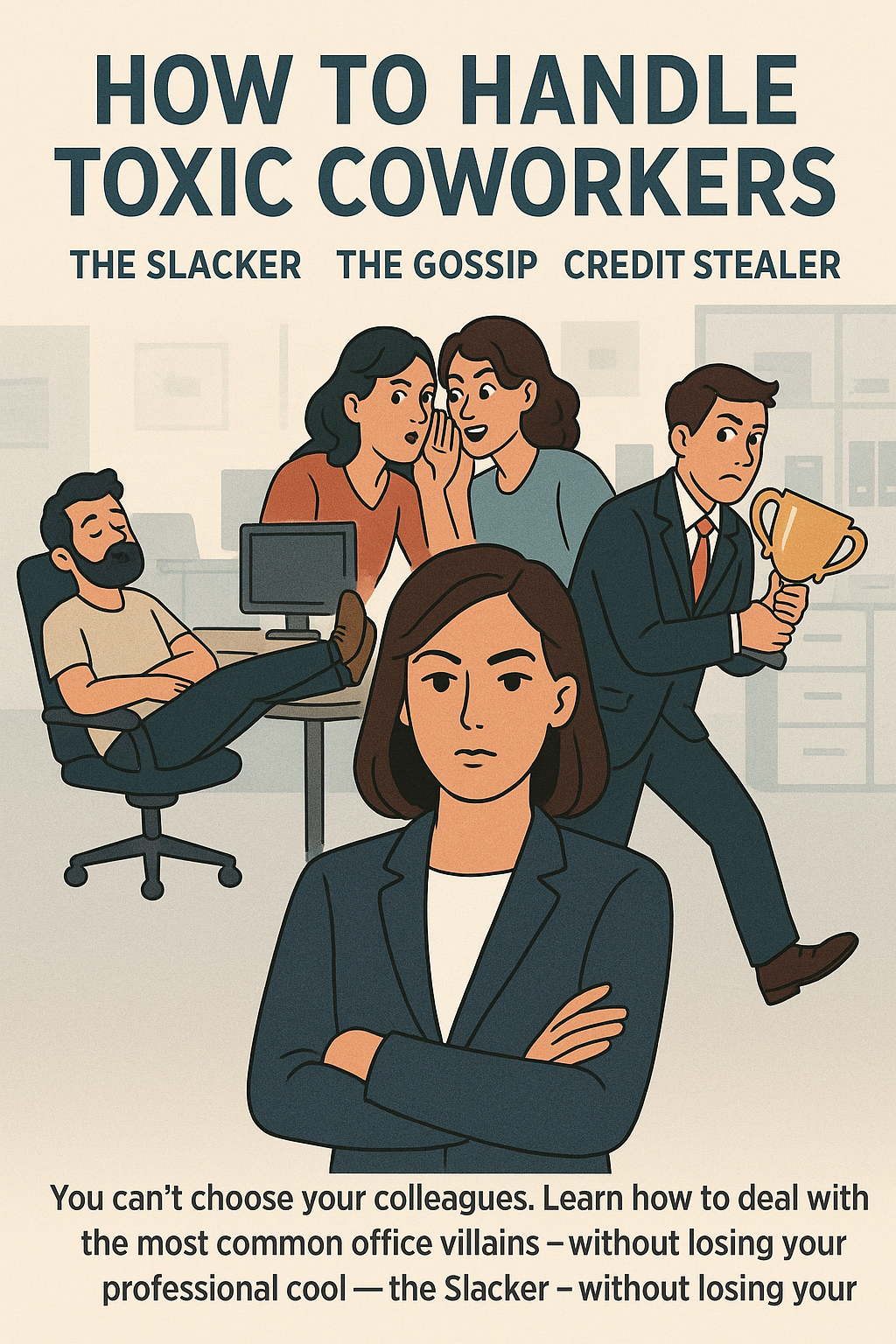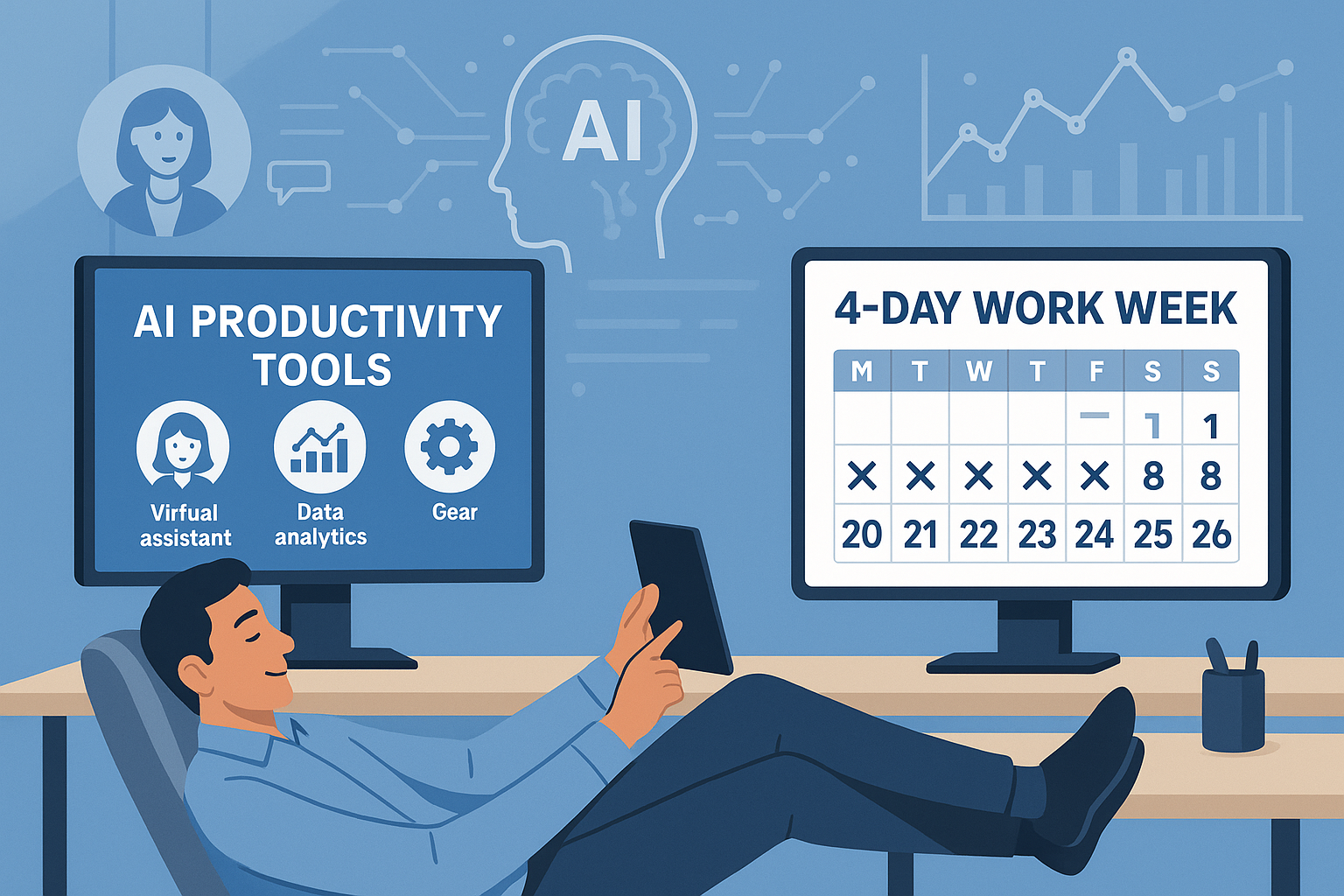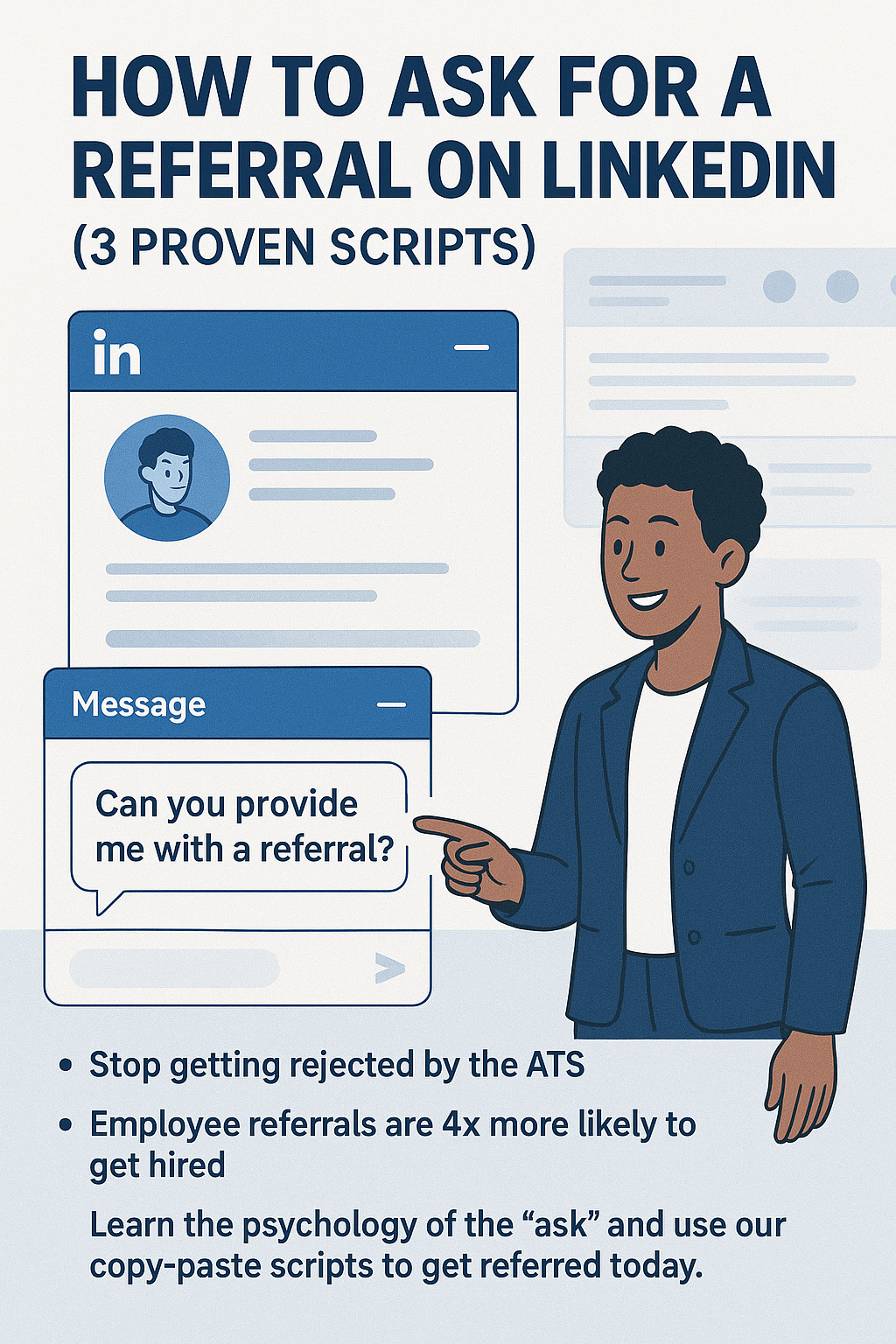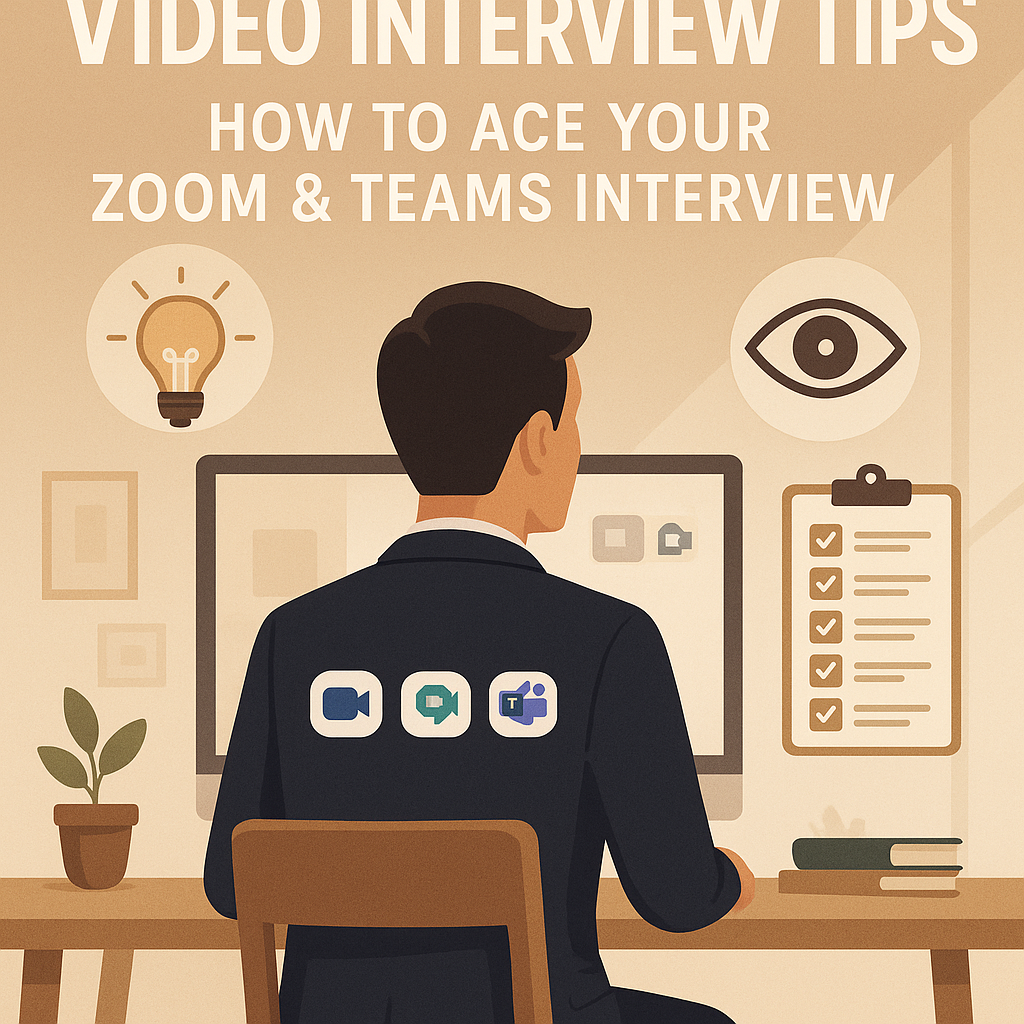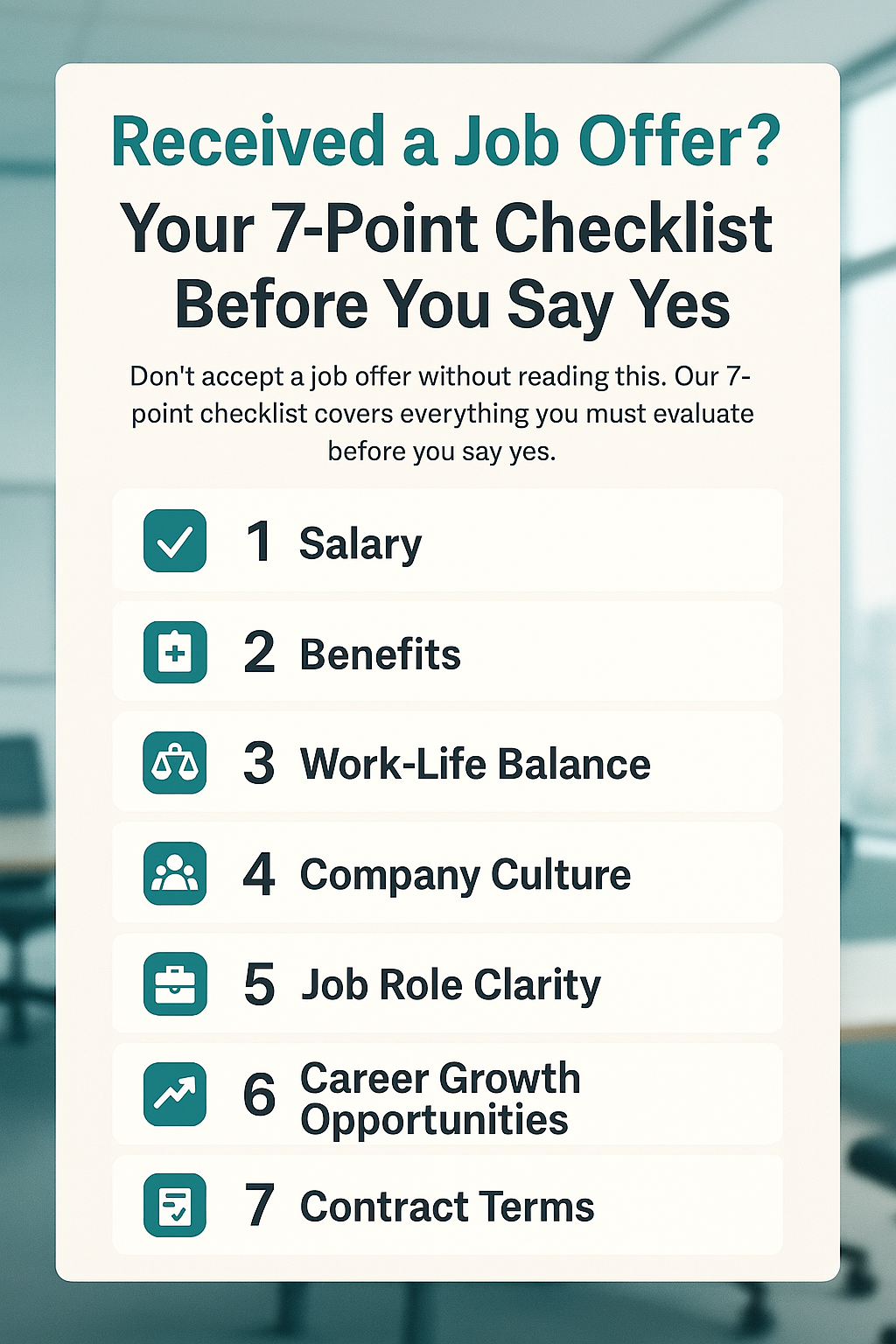
Received a Job Offer? Your 7-Point Checklist Before You Say "Yes"
It’s the moment every job seeker dreams of. After weeks, or perhaps months, of relentless searching, tailoring resumes, preparing for interviews, and navigating nerve-wracking follow-ups, you finally get the call or email you’ve been waiting for: "We’d like to extend an offer of employment to you." An incredible wave of relief, excitement, and validation washes over you. Your hard work has paid off. Your immediate instinct is to shout "Yes!" from the rooftops, sign the letter, and start planning your first day.
But this is the precise moment when you need to pause, take a deep breath, and transition from the mindset of a job seeker to that of a strategic career decision-maker. Accepting a job offer is one of the most significant financial and lifestyle decisions you will make. It will shape your daily routine, your financial future, your professional growth, and your overall happiness for the foreseeable future. Rushing into this decision based on the initial euphoria of receiving an offer is a common but potentially costly mistake.
An offer letter is not just a confirmation; it is a proposal. It’s the starting point of a new professional relationship, and like any important contract, it requires careful and thorough evaluation. You owe it to your future self to look beyond the headline salary and scrutinize every detail of the package being presented. What seems like a fantastic offer on the surface might hide an unfavorable work culture, a weak benefits package, or limited opportunities for growth.
This is your moment of maximum leverage. The company has invested significant time and resources into the hiring process, and they have chosen you as their top candidate. Now is the time to ensure the role is truly the right fit from every possible angle. This guide provides a comprehensive 7-point checklist to walk you through a systematic evaluation of your job offer. Following these steps will empower you to make an informed, confident decision that sets you up for long-term success and satisfaction.
1 Deconstruct the Compensation Package (It's More Than Just CTC)
The first thing everyone looks at is the salary, but a smart candidate knows that the Cost-to-Company (CTC) is just the beginning of the story. You need to deconstruct the entire financial package to understand your true take-home pay and the total value of your compensation.
Understand Your In-Hand Salary
Request a detailed salary breakup from HR. This is a standard and professional request. You need to see the exact components: the Basic Salary, the House Rent Allowance (HRA), and other allowances. Your Basic Salary is the most crucial number, as it’s the foundation for your Provident Fund (PF) contributions and gratuity. Then, understand the deductions: your employee PF contribution, professional tax, and the estimated Tax Deducted at Source (TDS). The final number after these deductions is your net, or in-hand salary. This is the amount that will actually hit your bank account, and it's the number you should use for your personal budgeting.
Evaluate the Variable Pay and Bonuses
Is a portion of your CTC listed as "variable pay" or a "performance bonus"? Understand how this bonus is calculated. Is it based on your individual performance, your team's performance, or the company's overall profitability? Crucially, is it guaranteed? Ask about the history of bonus payouts over the last few years. A large, discretionary bonus is much less certain than a slightly lower, guaranteed base salary.
Look at the Long-Term Wealth Builders
Does the offer include Employee Stock Options (ESOPs) or Restricted Stock Units (RSUs)? For startups and public companies, this can be an incredibly valuable part of your compensation. You must ask about the vesting schedule. A four-year vesting schedule with a one-year cliff is standard, meaning you get no stock if you leave within the first year. Understanding the long-term wealth-building potential is critical.
2 Scrutinize the Health and Insurance Benefits
A strong benefits package is a vital part of your financial safety net. Don't just tick the box that says "health insurance provided." Dig into the details.
What is the total coverage amount of the health insurance policy? Does it cover just you, or does it include your parents, spouse, and children? What is the premium you are expected to contribute, if any? Beyond health insurance, does the company offer other valuable benefits like life insurance, disability insurance, or a group personal accident policy? A comprehensive benefits package can be worth lakhs of rupees per year and should be a significant factor in your decision.
3 Understand the Role and Responsibilities in Detail
You discussed the role during the interview, but the offer stage is your chance to get absolute clarity. If you don't already have a formal, written job description, ask for one.
Review the list of responsibilities and daily tasks. Does this align with what you discussed in the interview? Does it match your career goals and play to your strengths? Be wary of vague job descriptions, as they can sometimes be a red flag for a poorly defined role.
Ask critical questions about expectations. What does success look like in this role in the first 30, 60, and 90 days? Who will you be reporting to, and what is their management style? Who are the key stakeholders you will be collaborating with? Having a crystal-clear understanding of the role prevents surprises on your first day and ensures you are set up for success. To ensure your skills are a perfect match, you can even re-evaluate your resume against the job description using a tool like JobPe's ATS Check.
4 Investigate the Company Culture and Work Environment
You will be spending at least eight hours a day, five days a week, with this company. The work environment and company culture will have a massive impact on your happiness and mental well-being. This is an area you must investigate thoroughly.
Think back to the interview process. Were people friendly and respectful? Was the office environment energetic or subdued? Beyond your own impressions, do some external research. Read company reviews on platforms like Glassdoor, but do so with a critical eye, looking for consistent themes rather than outlier comments.
Use LinkedIn to find current or former employees of the company. Reach out to one or two with a polite message, perhaps an alumnus from your college, and ask for a brief, confidential chat about their experience working there. Ask about the work-life balance, the team dynamics, and the overall management style. This insider's perspective is invaluable. You can also research the company directly on platforms like JobPe.
5 Clarify the Policy on Working Hours and Flexibility
The 9-to-5 workday is no longer a universal standard. You need to have a clear understanding of the company's expectations regarding your time.
Is there a fixed start and end time, or is there flexibility? What is the company's policy on remote work or a hybrid model? Is it a formal policy or an informal arrangement? How does the company handle overtime? Are you expected to be available on weekends? These questions are not just about convenience; they are about establishing boundaries and ensuring the role is compatible with your lifestyle.
6 Define the Path for Growth and Development
A job is not just a job; it's a step in your career journey. You need to ensure this role will help you grow, not just keep you stagnant.
Ask about the typical career path for someone starting in this position. Are there opportunities for promotion? How does the company support professional development? Do they have a budget for training, certifications, or attending industry conferences? Does the company have a culture of internal mobility, allowing employees to move between departments? A company that invests in its employees' growth is a company that values its talent. A great way to prepare for this conversation is to research potential career paths and relevant interview questions about career development.
7 Get It All in Writing and Understand the Logistics
A verbal promise is not an official offer. Do not resign from your current job until you have a formal, written offer letter in your hands. Read every line of the contract carefully.
Pay close attention to the notice period, any non-compete clauses, and the company's policies on intellectual property. Clarify the simple but important logistical details. What is your official start date? What is the onboarding process like? What equipment (like a laptop) will be provided?
The Final Step Negotiating and Accepting with Confidence
Once you have gone through this checklist and have a complete picture of the offer, you are in a position of power. If you find any areas that are not up to your expectations—perhaps the salary is slightly below market rate, or the vacation policy is less generous than you'd like—you can now enter into a professional, data-backed negotiation.
For example, you could say: "Thank you so much for the offer. I'm very excited about the opportunity. Based on my research into the market rates for this role and my specific skills in [Skill X], I was expecting a base salary in the range of [Your Researched Range]. Would there be any flexibility on that front?"
Conclusion Your Career, Your Choice
Receiving a job offer is a moment of celebration, but it's also a moment of critical business decision-making. By treating the offer letter not as a finish line but as a document to be carefully evaluated, you empower yourself to make the best possible choice for your career.
Use this 7-point checklist as your guide. Deconstruct the compensation, scrutinize the benefits, clarify the role, investigate the culture, understand the work-life policies, define the growth path, and get everything in writing. By doing your due diligence, you can accept your next role not with hopeful uncertainty, but with the rock-solid confidence that you are making a strategic, informed, and exciting move for your future.
To find more opportunities where you can apply this careful evaluation process, set up targeted job alerts or build a standout application with the JobPe Resume Builder to attract the offers you deserve.
For more tools and resources to help you manage every stage of your career journey, https://jobpe.com.

Creative Content Writer


